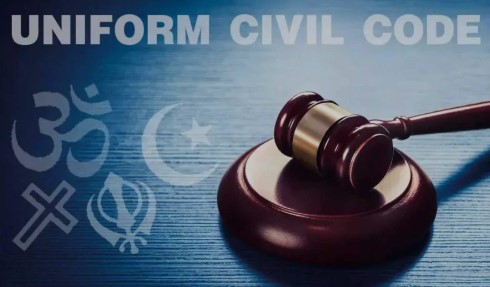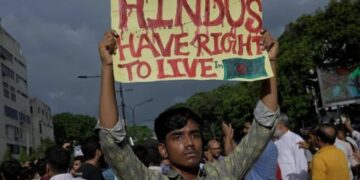The All India Muslim Personal Law Board or AIMPLB has decided to challenge the recent Supreme Court decision that requires Muslim men to pay maintenance to divorced women beyond the “Iddat” period, a waiting time for Muslim women after divorce. This challenge will be brought before a larger Bench of the Supreme Court.
In addition, the AIMPLB plans to oppose the implementation of the Uniform Civil Code-UCC or Common Civil Code-CCC in Uttarakhand.
These decisions were made during an AIMPLB meeting held on Sunday. The board’s legal committee reviewed the Supreme Court order and resolved to explore all possible legal avenues to uphold Muslim personal laws.
“Our legal committee thoroughly reviewed the order and decided to defend Muslim personal laws,” said AIMPLB member Maulana Khalid Rashid Farangi Mahali. “The Constitution grants every citizen the right to live according to their religious customs. For communities with personal laws, like Muslims, these laws govern aspects of daily life, including marriage and divorce.”
The AIMPLB will challenge the ruling before a larger bench, according to Mahali.
The board emphasised that the Indian Constitution allows individuals to adhere to their personal laws, which for Muslims include guidelines on marriage, divorce, and maintenance.
Regarding the UCC in Uttarakhand, the AIMPLB views it as a direct violation of personal laws. The board also discussed potential challenges to the Waqf Act in various courts, expressing concerns that changes to the act could endanger Waqf properties. The AIMPLB resolved to vigorously protect the Waqf Act.
During the meeting, AIMPLB members reiterated that marriage in Islam is meant to be a lifelong commitment, but provisions for divorce exist if irreconcilable differences arise. Under Shariat law, a man is required to pay maintenance only during the “Iddat” period, which lasts three months and ten days.
The board questioned the rationale behind extending maintenance payments beyond the “Iddat” period, arguing that once the marital relationship is dissolved, there should be no further financial obligations.
On the UCC in Uttarakhand, Maulana Khalid Rashid Farangi Mahali stated, “No government has the power to challenge Muslim personal laws. The UCC is seen as a violation of Shariat law and the constitutional protections provided by the Shariat Application Act and Article 25, which guarantees the freedom to practice religion.”

















